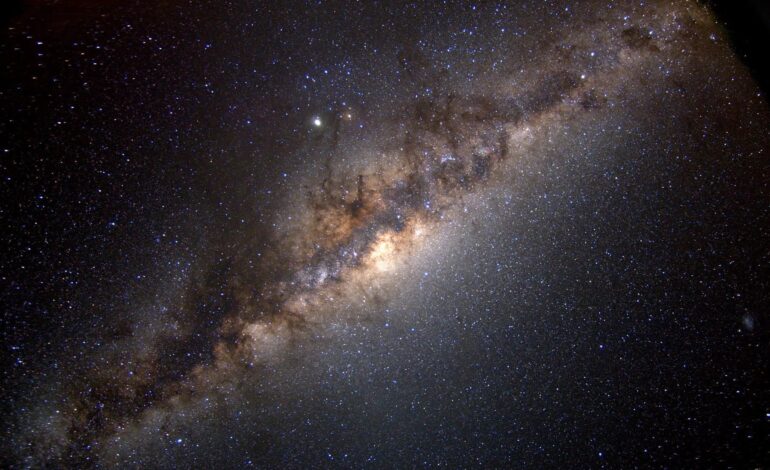Research Reveals Galactic Events Shaped Earth’s Geological History

New research from Curtin University has uncovered significant links between galactic events and the geological evolution of Earth. The study, published on September 19, 2025, in the journal Physical Review Research, indicates that the structural evolution of the Milky Way galaxy has influenced the development of Earth’s crust, particularly through the analysis of ancient crystals found beneath the planet’s surface.
The research was conducted by Christopher L Kirkland, a Geology Professor and member of the Timescales of Mineral Systems Group at Curtin University, alongside Patrick James Sutton, a Senior Lecturer in Astrophysics at the University of Lincoln. Their findings challenge long-standing theories that attributed the shaping of Earth’s crust solely to internal geological processes.
Galactic Influences on Earth’s Crust
According to the researchers, the impact of meteorites during Earth’s orbit around the center of the Milky Way has played a crucial role in shaping the planet’s geological history. Their analysis suggests that these extraterrestrial impacts, rather than being isolated incidents, are part of a broader galactic narrative that has left its mark on Earth.
Prof. Kirkland emphasized the implications of their findings, stating, “Earth’s geological evolution cannot be understood in isolation. Astrophysical processes on a galactic scale have directly influenced geological history.” This assertion implies that the chemistry of zircon crystals found in the Earth’s crust may hold keys to understanding the rhythm and timing of these impacts.
The researchers propose that the crystals act as a geological record, capturing the effects of galactic events over billions of years. This groundbreaking perspective ushers in new opportunities for research at the intersection of geology and astronomy, potentially leading to what they term a new era of astro-geological science.
Implications for Future Research
Prof. Kirkland’s insights suggest that these findings could pave the way for further exploration into how cosmic phenomena have influenced the conditions that fostered life on Earth. The study invites a reevaluation of the relationship between our planet and the greater cosmos, encouraging a multidisciplinary approach to understanding the forces that have shaped not only Earth but potentially other planetary bodies as well.
As the scientific community continues to delve into the complexities of Earth’s geological history, the integration of astrophysical perspectives may reveal deeper connections between our planet’s past and the universe’s vast narrative.
For further reading, visit Curtin University or access the full study in Physical Review Research.






